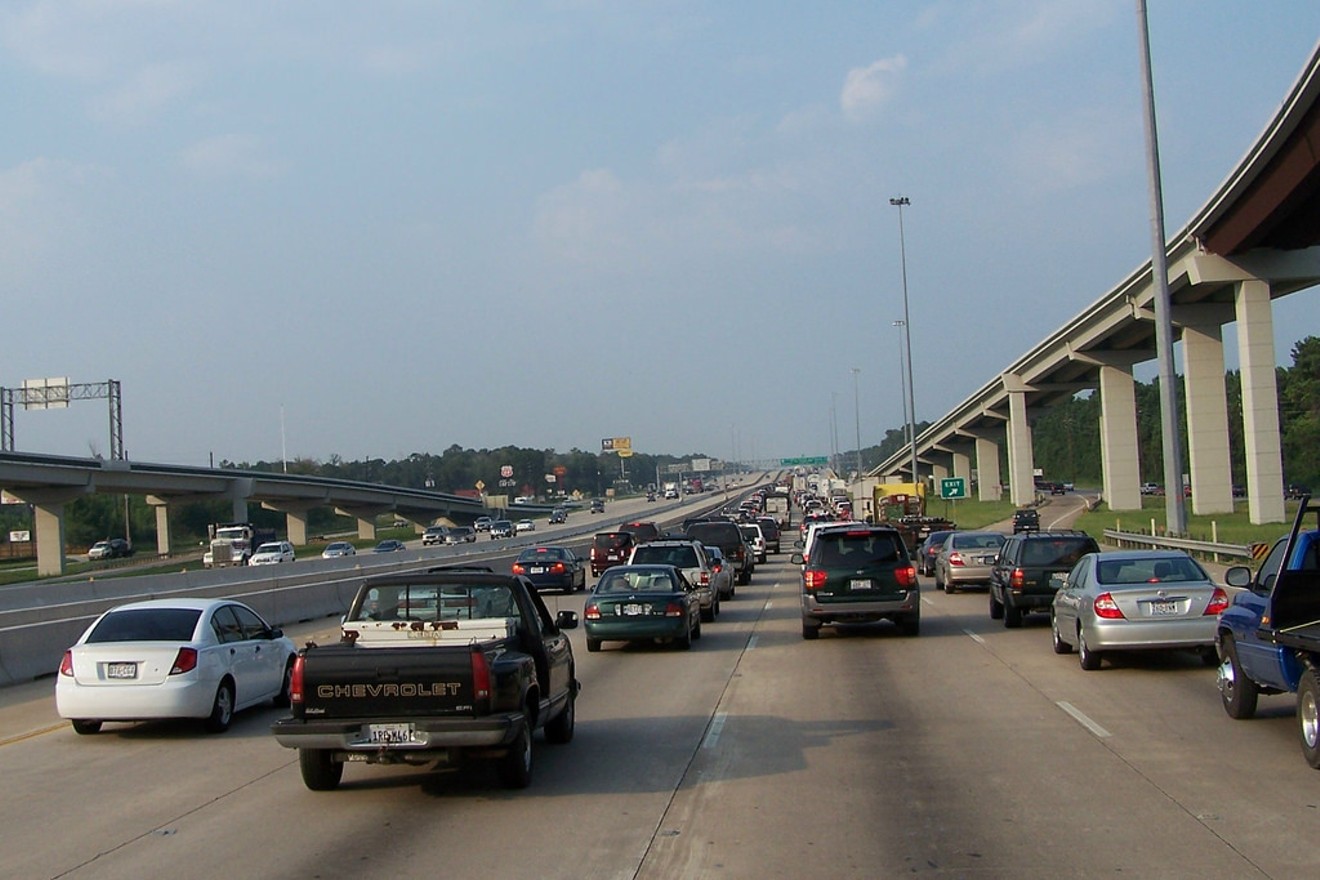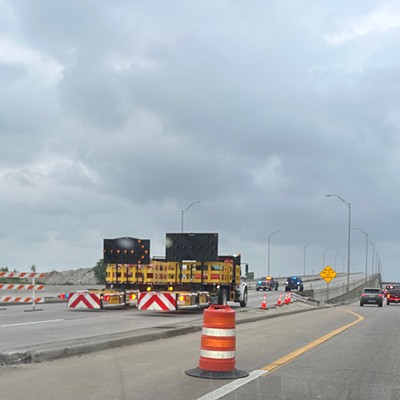As Hurricane Barry rolled into the central Louisiana coastline over the weekend, no doubt many Houstonians were breathing a sigh of relief. While Barry wasn't exactly a blockbuster storm, it dropped dozens of inches of rain across a wide region from Louisiana, Mississippi and Alabama north to Arkansas. For anyone still suffering PTSD after Hurricane Harvey, it must have been a happy weekend.
But, we are currently in the middle of hurricane season with the peak typically about seven or eight weeks from right now, plenty of time for another Barry or worse.
Our region is massive encompassing more than 600 square miles for the city alone and more than 1,000 miles when you count the entire metro area. Moving people in and out is tough enough on a daily basis, but as we saw in the build-up to 2005's Hurricane Rita, the exodus from our area can not only be difficult, it can be deadly.
Even for major storms, the vast majority of Houstonians should not evacuate. Low lying areas, people with medical conditions, etc. are the most vulnerable, but if you do decide to get out, here are a few suggestions.
Plan ahead.
Decide what you are going to do, when you'll make a final decision and how you will implement any plan like now if you haven't already. Whatever supplies you think you might need — bottled water, medicine, important family papers, things for your pets and children — have them organized before you are in a panic. If you still have extra stuff left over after hurricane season is done, save it for next year or use it.
Choose the roads less travelled.
For as many ways out of Houston there might be, most people choose only a handful: I-45, I-69, I-10, Highway 290. There are more and better options besides the main freeways just to get free of the tangle near town and once you get beyond the city limits plenty of other options. During Rita, people were stranded on the freeways for a day or more. Those who knew better found paths around the chaos and were out of town in a matter of hours.
Have extra gas.
If you think you may need to make a longer trek, consider getting a container of gas — 5-10 gallons — and keep it around if you need to go. Gas lines can be really long and stations often run out. Having extra gas could keep you from being stranded. Just don't store it in the car. Strap it to your roof or carry it on the outside on a trailer or something similar.
Find food and gas options in overlooked areas.
The last-minute hunt for staples like water and canned goods can be maddening at area grocery stores. But there are stealthy ways to get water and other items if you are clever. For water, consider home office stores, which often keep cases of bottled water in stock. And for an alternative to the standard grocery store, consider stores in less traveled areas where people are less likely to evacuate. Often less affluent parts of town have gas and groceries to spare...and they can always use the business.
Make plans for your pets.
It is a given that people prepare for elderly and young family members, but what about the furry (and feathered and scaly) ones? As we saw in Hurricane Harvey, there were some dramatic and tear-inducing animal rescues, never mind the hundreds of people that refused to leave home without their pets. Avoid the problem by having what you need on hand — kennels, food, medicine, blankets — and methods of transportation. Don't leave ANY loved ones behind.
Leave as early as possible.
One way to avoid a mess is to simply leave before it happens. If you can, take a long weekend or put in a sick day or two. Getting out even a day ahead of when things start looking their worst will save time and energy.
Secure your home.
It's bad enough you are leaving, but be sure to make sure your home is locked and your valuables are secure. If you are worried about flooding, move your valuables to higher areas. The last thing you want to be worried about while you are gone is what you will face when you come back.
Don't leave unless you have to.
This seems like it goes without saying, but we will say it anyway. For the vast majority if Houstonians, there are very few reasons to leave town when a storm approaches. Yes, they can be super scary, but it is unlikely your survival depends on your evacuation. If you are told to go or in an evacuation zone, by all means, get out. But if you are tucked away in The Woodlands, you are probably fine. And the more of us who don't need to be on the roads get on them, the worse it is for everyone.
Support Us
Houston's independent source of
local news and culture
account
- Welcome,
Insider - Login
- My Account
- My Newsletters
- Contribute
- Contact Us
- Sign out

Regular traffic is bad, but there is nothing like evacuation traffic. Be prepared.
Photo by David Rogers via Flickr
[
{
"name": "Related Stories / Support Us Combo",
"component": "11591218",
"insertPoint": "4",
"requiredCountToDisplay": "4"
},{
"name": "Air - Billboard - Inline Content",
"component": "11591214",
"insertPoint": "2/3",
"requiredCountToDisplay": "7"
},{
"name": "R1 - Beta - Mobile Only",
"component": "12287027",
"insertPoint": "8",
"requiredCountToDisplay": "8"
},{
"name": "Air - MediumRectangle - Inline Content - Mobile Display Size 2",
"component": "11591215",
"insertPoint": "12",
"requiredCountToDisplay": "12"
},{
"name": "Air - MediumRectangle - Inline Content - Mobile Display Size 2",
"component": "11591215",
"insertPoint": "4th",
"startingPoint": "16",
"requiredCountToDisplay": "12"
}
,{
"name": "RevContent - In Article",
"component": "12527128",
"insertPoint": "3/5",
"requiredCountToDisplay": "5"
}
]
KEEP THE HOUSTON PRESS FREE...
Since we started the Houston Press, it has been defined as the free, independent voice of Houston, and we'd like to keep it that way. With local media under siege, it's more important than ever for us to rally support behind funding our local journalism. You can help by participating in our "I Support" program, allowing us to keep offering readers access to our incisive coverage of local news, food and culture with no paywalls.
Jeff Balke is a writer, editor, photographer, tech expert and native Houstonian. He has written for a wide range of publications and co-authored the official 50th anniversary book for the Houston Rockets.
Contact:
Jeff Balke
Trending News
- Celebrity Rosters Announced for J.J. Watt Charity Softball Game
- Avoid Highway 90 Like the Plague This Week
- Rockets 2023-24 Report Card: The Starters
-
Sponsored Content From: [%sponsoredBy%]
[%title%]

Don't Miss Out
SIGN UP for the latest
news, free stuff and more!
Become a member to support the independent voice of Houston
and help keep the future of the Houston Press FREE
Use of this website constitutes acceptance of our
terms of use,
our cookies policy, and our
privacy policy
The Houston Press may earn a portion of sales from products & services purchased through links on our site from our
affiliate partners.
©2024
Houston Press, LP. All rights reserved.





